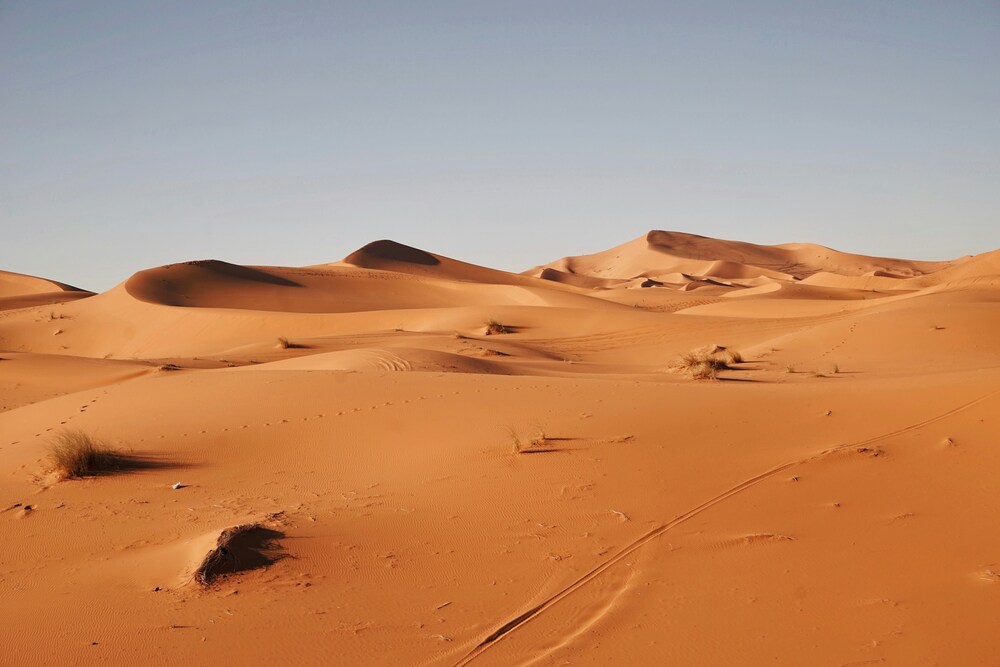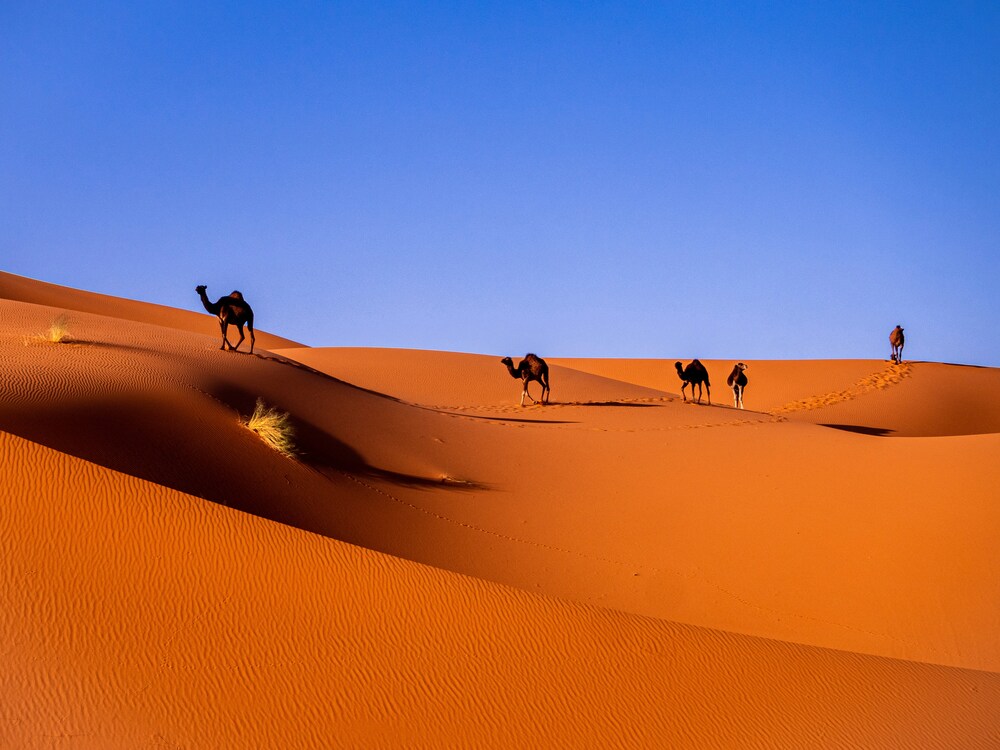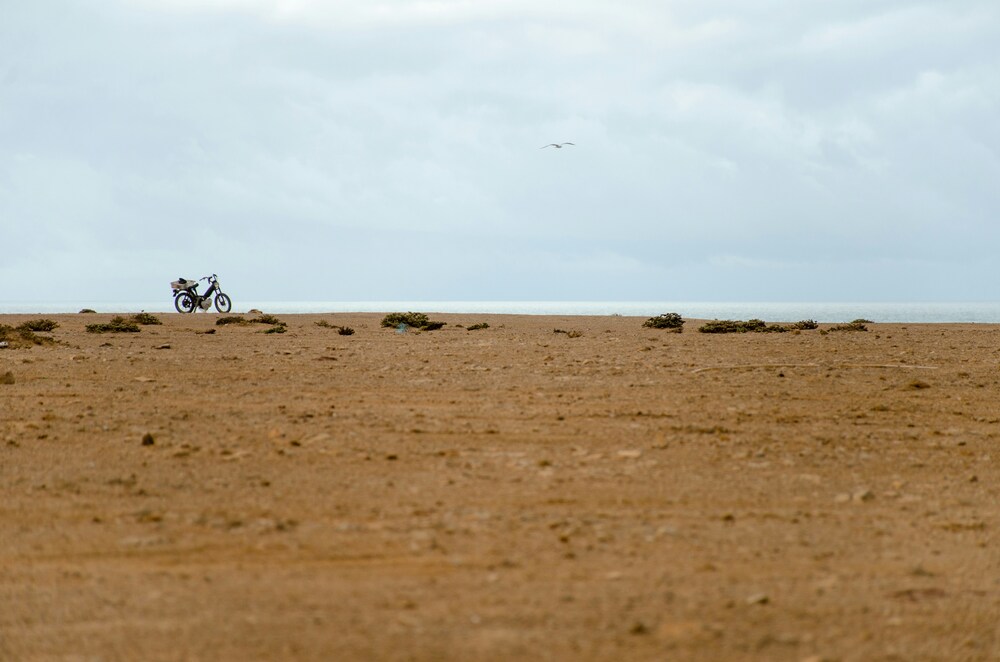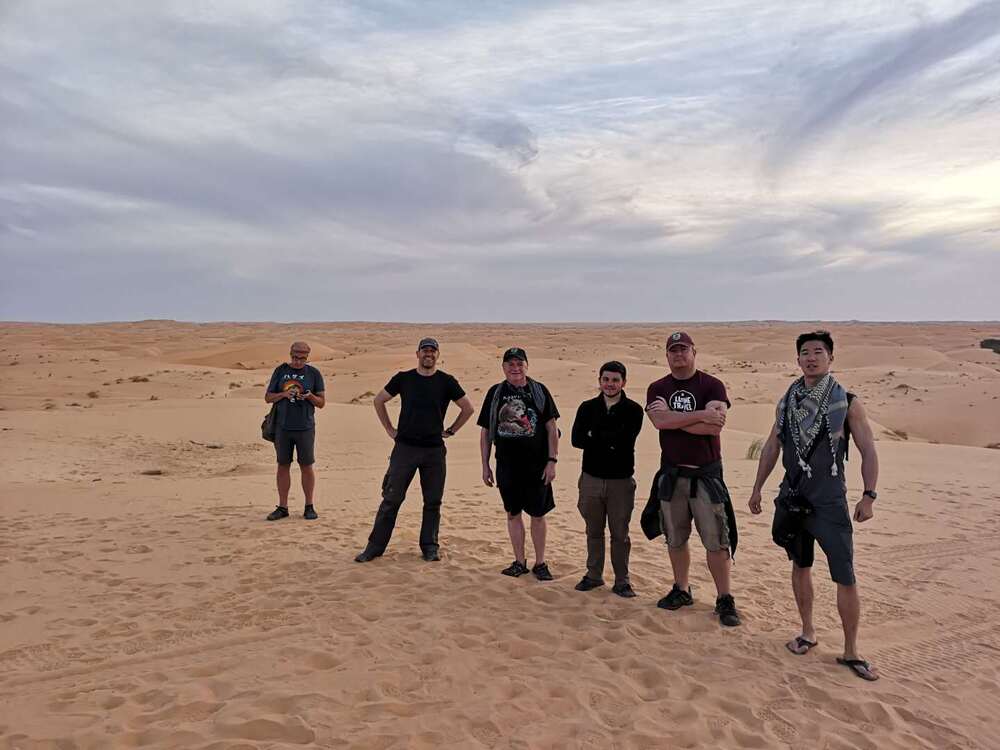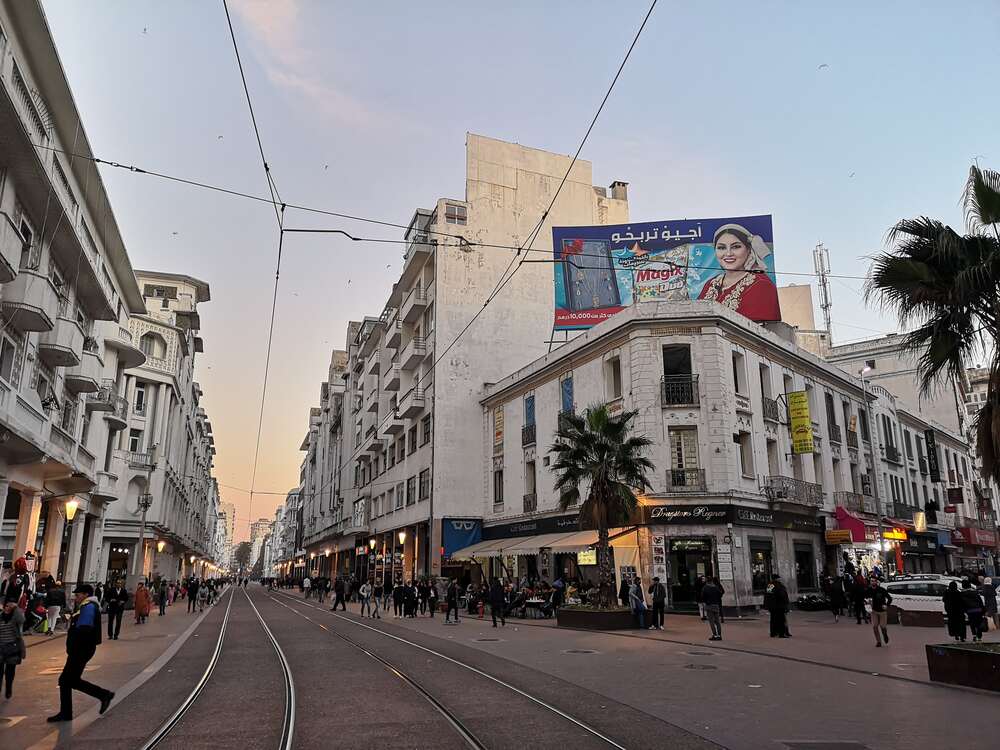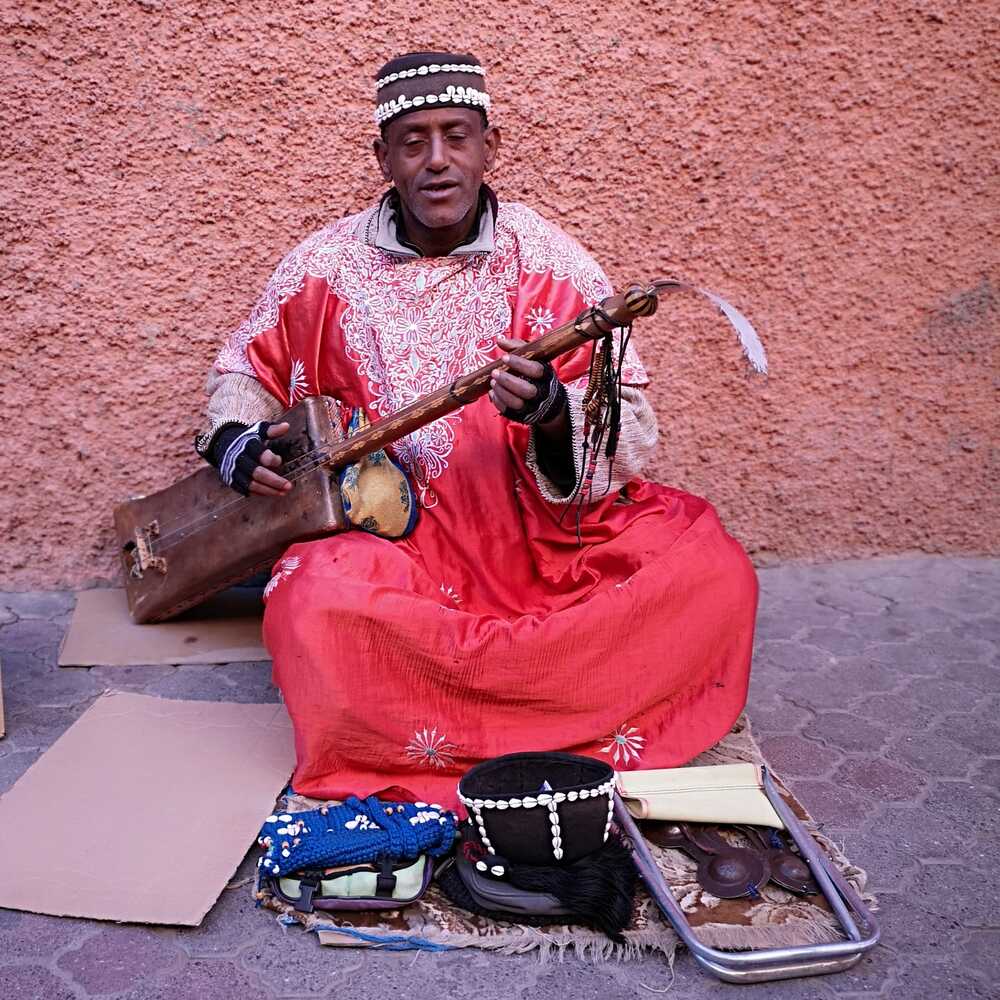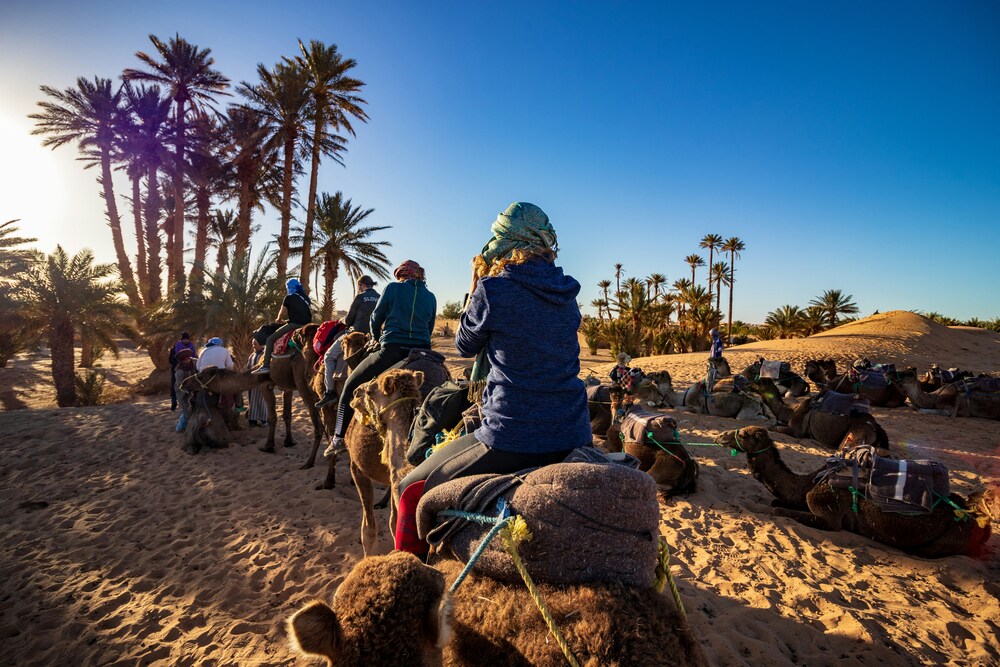YPT Tours to Western Sahara
Join one of our Western Sahara tours to one of the most disputed regions in the African continent – perhaps even in the world! Western Sahara is one of the rare regions considered as a non-self-governing territory, but Morocco claims some of the region’s territory. Despite this, Western Sahara retains its own identity of traditional Berber culture, mixed with Moroccan and Spanish influence to create an incredibly unique region in North Africa.
Most of the country is under the administration of Morocco, with a thin line between Morocco and Mauritania, as well as the border with Algeria under the control of the Polisaro or the army fighting for the independence of the country.
Our connections allow to organise tours both to the part which is administrated by Morocco but also to get up close to the Sahrawi administration in Algeria
Group Tours to Western Sahara
YPT currently does not offer tours to Western Sahara, however you can keep up to date with our tours in North Africa and join us in Algeria, Mauritania and Libya. We are always expanding our scope of destinations, so check this page and our social media accounts to be the first to know when we offer group tours to Western Sahara.
Independent Tours to Western Sahara
YPT can organize Western Sahara tours to fit your travel dates, time and budget. Whether you want to visit Western Sahara as a standalone tour, combine it with neighbouring countries such as Mauritania and Algeria, or explore a specific part of Western Sahara, YPT can personalize a tour right for you! Prices depend on the number of people and what level of accommodation you desire, but YPT can arrange everything you need for perfect independent Western Sahara tours.
Below is an example Western Sahara itinerary can be extended or combined with other activities or countries.
The region can be reached from Morocco either by driving from Agadir, a nearby Moroccan beach vacation city which has daily connections with most of Europe or via Mauritania, driving up north from Nouadhibou and crossing into the No-man’s land. It is also possible to fly directly into Western Sahara as the two main cities of the region, Dakhla and Laayoune, both have international airports with some connections.
In this region, YPT can arrange tours, transportation, accommodation as well as guides and translators, contact us for a quote!
Example of a Western Sahara Itinerary (6 days)
Day 1– Casablanca
- Arrive at your convenience into Casablanca, the largest city of Morocco which is well connected from many countries in Africa and Europe
- Dinner at a traditional Moroccan restaurant to feast on local famous dishes followed by belly-dancing.
- Explore old town and Medina to experience some of Casablanca’s interesting nightlife
- Overnight in Casablanca
Day 2 – Casablanca – Layoune
- Breakfast at the hotel and check-out
- Begin exploring Morocco’s most progressive and culturally diverse city with your first stop at the Medina. The old town was left untouched by the French with narrow alleyways lined with stores and homes where locals have lived for hundreds of years.
- Visit the United Nations Square. It was first constructed in 1908 after the French bombardment and invasion of Casablanca and previously named the “Square of France”
- Explore through Habous district. Also known as the New Medina, this area is packed with street markets where locals bargain for fabrics, clothes, and local snacks such as almond pastries, stuffed dates or the incredible Makouda – deep fried potato balls dipped dipped into spicy harissa sauce.
- Lunch in town at a local restaurant known for great couscous-based dishes
- Visit Hassan II Mosque, the largest mosque outside of the Middle East with the tallest minaret in the world
- Stop by the Boulevard de la Corniche. What was once the famous and glorious thriving nightlife of the city along the ocean is now a quirky part of town with plastic surgery clinics and odd shops.
- Dinner nearby at a local restaurant
- Head to the airport and board our 7:45pm flight to Laayoune, the largest city of the disputed territory of Western Sahara
- Overnight at Hotel Rimal in Laayoune
Day 3 – Laayoune
- Breakfast at the hotel and head to the busiest souk in Western Sahara
- Visit the Grand Mosque, one of the most important landmarks in the city and apparently designed under the guidance of Spanish dictator Francisco Franco. The mosque is a simple, yet very peaceful symbol of the city situated in the central square and surrounded by palm trees
- Stop by the Laayoune Craft Centre, a bazaar offering the most authentic traditional souvenirs
- Lunch at a local restaurant for your chance to try camel meat
- Explore the Spanish Cathedral. In 1940 Spain designated Laayoun as the capital of the Spanish Sahara and this Cathedral is the best relic leftover from colonial times. You may even meet a priest in a majority Muslim country.
- Head out of town to the dunes for late afternoon mint tea and sand-based activities
- On the way back into town, we’ll stop for dinner at a truck stop offering surprisingly incredible fare and enormous, delicious portions of local dishes
- Visit a bar at Hotel Al Massira and overnight at Hotel Rimal
Day 4 – Laayoune – Dakhla
- Breakfast at hotel and hit the road for Dakhla city, a disputed territory currently administered by Morocco
- On the way, stop at the rural town of Boujdour to visit a lighthouse built by the Portuguese in the 18th century
- Explore Boujdour Port, a fascinating scene of hundreds of fishing boats with thousands of fishermen
- Lunch of fresh fried fish – delicious in this area!
- Stopping at one of our favorite hidden sites to take a dip into the Atlantic Ocean
- Early evening arrival into Dakhla city
- Dinner at Villa Dakhla and overnight at the Hotel Imperial Playa
Day 5 – Dakhla
- Breakfast at hotel and a brief tour of Dakhla
- Depart the city and head out for the dune blanche, a place that must be seen to be believed. This enormous sand dune perched in the middle of a lagoon is a hotspot for flamingos.
- Visit the natural hot underground springs. Here you can take a jet shower from a high-pressure hose. The experience could be described as half massage, half waterboarding. The 38°C sulfur water is said to offer various health benefits
- Lunch at a local traditional seafood restaurant by the beach where they serve a delicious mixed seafood tajine as well as enormous fish (good for six people). You can also order fresh oysters (extra 0.5 EUR per oyster)
- Stop by the Ostrich farm where you can prove your bravery by letting an ostrich pinch your hand
- Head back to the hotel in Dakhla to freshen up
- Dinner out in town (and your last chance at easily accessible alcohol)
- Overnight in the Hotel Imperial Playa
Day 6 – Dakhla – Nouadhibou
- Breakfast at the hotel
- Begin your drive to the border of Morocco. Here you’ll exit Morocco and end up in the ‘5 kilometers no man’s land’. While the rest of Western Sahara is claimed by Morocco, this particular area of land is indisputably Sahrawi. You can see many thieves selling stolen cars, gun smugglers, refugees and other interesting folk hanging out.
- Cross into Mauritania. The moment you cross into Mauritania you’re entering a whole new world. There is a visa on arrival service which may take some time to process; you must bring small denominations of Euros to pay for your visa in exact cash (55 euros).
- Transfer to Nouadhibou city, the country’s second largest city and economic capital and lunch on arrival
- From here, you can continue traveling through Mauritania or you can depart via the International Airport.
Bespoke Western Sahara Tours
As part of our travel packages within Western Africa, we can offer bespoke and independent Western Sahara tours. These can be done as full Western Sahara tours or be combined with other countries.
For more information on the following programs, simply get in touch.
Smara Tour
Venture deep into the region claimed by the Sahrawi Arab Democratic Republic but controlled by Morocco by visiting Smara. Smara is one of the more populous cities in Western Sahara and was established in 1869. The city has an incredible fortress (Zawiy Maalainin) with a very old mosque inside. The city was supposed to become a trading hub for the Sahara, an oasis. However, in 1913, it was looted and destroyed by French soldiers, before being passed on to the Spanish. In 1975, the Moroccans took control of the region as Spain withdrew their forces.
Each occupier left their mark on the city, making Smara the only local town not founded by the Spanish and a very fascinating cultural and historical city to visit in Western Sahara.
Sailing in the Sahara Tour
The West coast of Western Sahara is completely bordered by the Atlantic Ocean, making it a great place to set sail. Explore the sea via sailboat or catamaran. Sail as you like – relax on board and take in the sights of Dakhla Bay or learn the basics of sailing. You can choose from half a day, a full day of sailing or even two days by staying in cabins on the boat!
Western Sahara via Morocco and Mauritania
Start from Morocco and venture south to Western Sahara, by starting in the regions claimed by Morocco. Once you have explored all the must-see places in Western Sahara, continue south and take on Mauritania, a very different North-Western country. You can combine Western Sahara as a private extension before or after our Mauritania tours to make the most of your time in the region!
Deir el-Hagara Tour
Explore the archaeological site of Deir el-Hagara, the ‘Monastery of Stone’. The site has a sandstone temple that is one of the best preserved and most ‘complete’ Roman temples in Western Sahara. Much of the pink-ish sandstone structure is covered in detailed images, depicting battles, religion and society. The site is located on an incredibly slender peninsula in the middle of Western Sahara, where Dakhla is located.
Polisaro-controlled region
The government of the Sahrawi Arab Democratic Republic is currently in exile in Algeria. They are in the border town of Tindouf, from which access to the Polisaro-controlled region can sometimes be gained. Tindouf can be reached with domestic flights within Algeria.
This is a true adventure and definitely not a standardized trip. Nonetheless, YPT is able to facilitate trips to the border and depending on the current situation, sometimes more. We have access to guides as well as translators in the region.
Filming in Western Sahara
Western Sahara is a great location for filmmakers and journalists to visit for its desert landscape, incredible seas and Berber culture mixed with the remnants of colonial powers. Through our media arm Pioneer Media, we can plan for productions, journalists, or others to film within Western Sahara from big budget to guerrilla productions to small projects. We can also arrange meetings in the country, as well as correct visas for journalists wishing to do projects within Western Sahara, within reason. Inquire for more information!
Frequently asked Questions about travel to Western Sahara
Gallery
